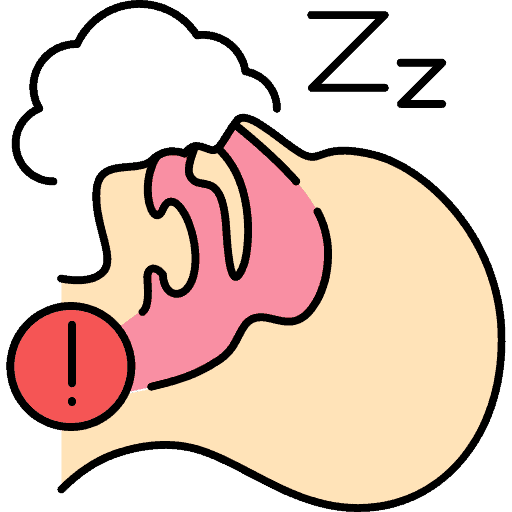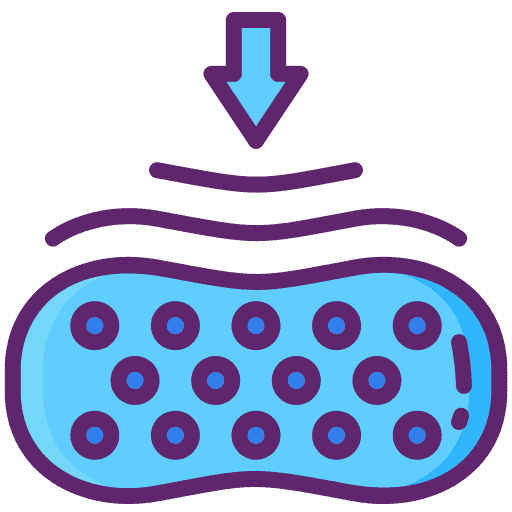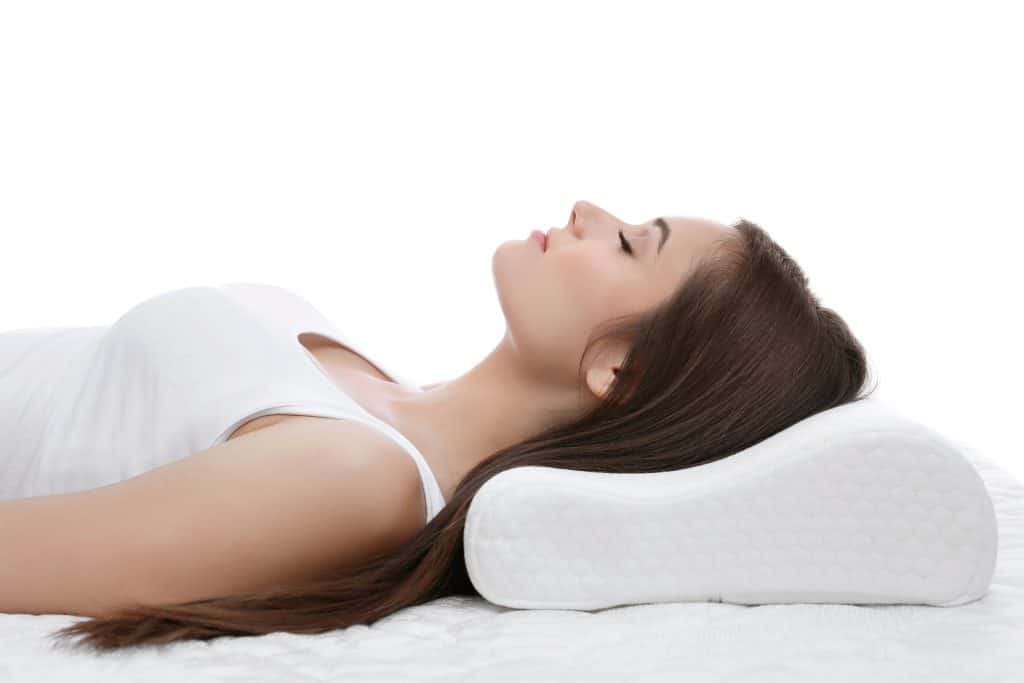Pillow Advice
Best Pillow for Back Sleepers
Did you know that the average human being spends a third of his life sleeping? We all know the benefits of sleep. It helps our body recover and our brains reboot. Good quality sleep results in a better mood and overall well-being. Investing in the right kind of sleeping aids can help you achieve good quality sleep.
People have their own favourite sleeping positions. Some of us like to sleep on our sides while others prefer to slumber on their stomachs. However, only a very few people like to sleep on their backs. But just because you’re in the minority does not mean to say that there aren’t any pillows for you.
Benefits of Back Sleeping
Sleeping on your back actually has a lot of benefits for the body. Back sleeping allows the spine to align naturally and the weight to be distributed evenly across the body, thus preventing pressure points. This position also allows for a more optimal blood flow. Back sleepers also toss and turn less at night, so their sleep is undisturbed.
Another benefit to back sleeping is fewer wrinkles. Since your face is not pressed to your pillow, there are fewer chances of wrinkling. It also means less chance of getting your face in contact with the germs and bacteria that inhabit your pillow case, so there’s also less chance of your skin breaking out.
People who suffer from acid reflux should also think about shifting to the back sleeping position. Since the neck and head are elevated and not aligned with the stomach, there is less chance of getting heartburn.
Snoring and Sleep Apnoea

There are some disadvantages to back sleeping. Sleeping in this position can cause snoring. Snoring is not actually bad for you (but it can be a problem for your bed partner), unless it’s sleep apnoea. This is a potentially dangerous condition because breathing starts and stops repeatedly. This can lead to poor sleep quality which leads to daytime fatigue and sleepiness.
Sleeping on the back can also cause backaches especially if your back does not receive good lumbar support. Luckily, there are pillows made especially for back sleepers to help prevent these problems.
Pillows for Back Sleepers
Memory Foam Pillows
A memory foam pillow is a good choice for back sleepers because it provides firm support. The key to a good night’s rest is to keep the neck and spine aligned during sleeping. Memory foam gently supports and aligns the neck so that you have good posture while you sleep.
Another benefit to memory foam is that it is neither too hard nor too soft. The material responds to temperature, so when your head and neck are resting in an area, it softens according to your temperature and weight, providing personalized support every time. Most memory foam pillows are made with Visco elastic foam that conforms to the shape of your head and neck for custom support.
Shredded Memory Foam Pillows
A shredded memory foam pillow is made up of shredded memory foam material which makes the pillow more mouldable. When the density of the pillow is adjusted, it can provide better support to the neck and shoulders, preventing backaches.
The more common memory foam pillow comes in a single sheet of foam. While this is sufficient for some people, there are still others who want to be able to personalise their support. Taking out the extra foam you don’t need while sleeping can make it easier for you to achieve better sleep quality.

Contoured Pillows
This type of pillow is ideal for snorers. A contour pillow moulds to the natural curvature of the neck which promotes better sleeping alignment. When the head neck and spine are all in a neutral position, it can reduce the likelihood of snoring.
Gel Pillows
Gel pillows help keep you cool at night. This is very advantageous if you sleep in a temperate climate or if you get hot too easily. In some types of gel pillows, there are gel inserts that help dissipate heat and keep you cool at night. In other models, the pillow itself is infused with gel, a technology that provides the same cooling feeling.
Polyester or Fibrefill Pillows
These pillows are great because they are mouldable and offer good support, especially if they are fluffed and maintained regularly. These are also some of the most affordable types of pillows, so you can replace them every 2 years to keep them fresh.
The downside to polyester or fibrefill pillows is that they get clumpy over time. This results in a decrease in their supportiveness. If you don’t replace them regularly, they can cause headaches and poor sleep quality. You don’t want to keep getting up at night to punch the clumps out of your pillows.
Hypoallergenic Pillows
Back sleepers with allergies should buy hypoallergenic pillows. They can be made with manmade or natural fibres that are not known to cause allergies. In some cases, they are also treated with chemicals or made with materials that are known to deter allergens.
Make sure to check the materials used in your hypoallergenic pillows. Some bamboo pillows are marketed as hypoallergenic but the material is susceptible to dust mites.
Takeaway
Support to the neck and head is very important to back sleepers. Although back sleeping promotes alignment of the neck and spine, back sleepers should look for a pillow that is neither too soft nor too firm to prevent stress from building up on the shoulders.
Back sleepers should also avoid pillows that are too hard or have too much loft. Lofty pillows cause the neck to tilt down to your chin, leading to discomfort and headaches.

